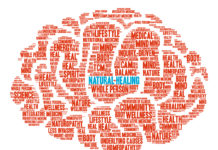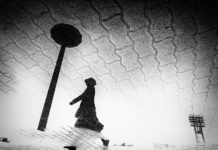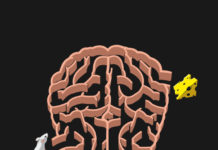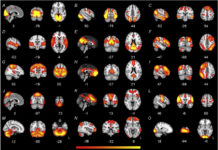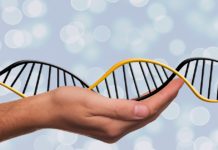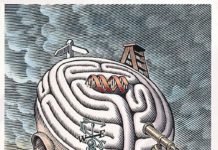Reimagining Healthcare
The conventional Western classification systems of health conditions are based on flawed science shaped by reductionist, hierarchical, and profit-driven ideologies. THEN wants to create a new paradigm built upon principles drawn from systems science, the life course perspective, developmental neurobiology, and other evidence-informed studies.
Mental Health Professionals and Patients Often Disagree on Causes of Symptoms
A new study finds that clinicians’ disregard for mental health patients’ insight into their own condition may be detrimental to treatment.
Hereditary Madness? The Genain Sisters’ Tragic Story
The story of the Genain quadruplets has long been cited as evidence proving something about the supposed hereditary nature of schizophrenia. But who wouldn’t fall apart after surviving a childhood like theirs? The doctors attributed their problems to menstrual difficulties or excessive masturbation — anything except abuse.
A Biopsychosocial Model Beyond the Mind-Body Split
Can a renewed biopsychosocial approach, grounded in an updated philosophy, foster person-centered medicine, and psychiatry?
Exposure to Antidepressants in the Womb Linked to Autistic Behavior in Mice
Researchers experimenting on mice found that exposure to fluoxetine (Prozac) in utero resulted in behaviors considered in animal studies to be analogous to autism in humans.
Researchers Fail to Replicate Evidence for “Biotypes” of Depression
A new study casts doubt on whether such biotypes for depression exist.
The Science and Pseudoscience of Women’s Mental Health: Conversation with Kelly Brogan
A conversation with Dr. Kelly Brogan, a leading voice in natural approaches to women’s mental health. With degrees from MIT and Weil Cornell Medical College, triple board certification in psychiatry, psychosomatic medicine and integrative holistic medicine, Dr. Brogan is uniquely qualified to challenge the pseudoscience of the chemical imbalance theory and the drug regimens that it spawned.
No Brain Connectivity Differences Between Autism, ADHD, and “Typical Development”
Neuroscience researchers find no differences in brain connectivity between children with diagnoses of autism, ADHD, and those with no diagnoses.
It is Time to Abandon the Candidate-Gene Approach to Depression
The candidate-gene approach to depression goes unsupported and is likely based on bad science, new research finds.
Mental Health Concerns Not “Brain Disorders,” Say Researchers
The latest issue of the journal Behavioral and Brain Sciences features several prominent researchers arguing that mental health concerns are not “brain disorders.”
Study Links Antidepressants and Decreased Coping Behaviors Across Generations
Biologists found that exposure to antidepressants suppresses important survival behaviors in zebrafish, an effect that persisted across three generations and was found to be more severe for males.
Philosophers Challenge Psychiatry and its Search for Mechanisms of Disorder
Attempting to locate the mechanisms of psychiatric disorder is a step in the wrong direction and fails to challenge potentially unjust social practices.
Researchers Call for Transparency About Limits of Psychiatric Knowledge
A new paper explores how the disputed nature of psychiatric knowledge influences public perceptions and debates within the field of mental health.
Reclaiming Humanity at the Dawn of Posthumanism: Conversation with Darcia Narvaez
The postmodern zeitgeist of the past few decades encourages us to believe that we can endlessly reinvent ourselves untethered to our human biology. But the explosion of research on the microbiome reminds us that we are deeply embedded in an ecosystem that lives within us and around us, without which we cannot survive.
Large Rigorous Study Debunks Popular Gene-Environment Theory of Depression
A large and rigorous meta-analysis fails to find support for the gene-environment interaction theory of depression.
Why Precision Psychiatry is Not a Paradigm Shift
A letter just published in JAMA Psychiatry suggests that “precision psychiatry” is not the paradigm shift it’s purported to be by the psychiatric establishment.
Bad-Science Warning: The “Minnesota Study of Twins Reared Apart” (MISTRA)
The huge impact of the MISTRA, in addition to the harmful and regressive social and political policy implications that flow from it, necessitates a detailed analysis of the “science” behind the study’s major claims and conclusions. Here I offer a new critique of this famous and influential “separated twin study.”
Sociologists Interrogate Neurobiological Explanations in Criminology
A discourse analysis conducted by sociologists finds problematic assumptions and practices in the field of neurocriminology.
Research Finds Parents’ Trauma May Impact Children’s Health
Study uncovers some of the intergenerational consequences of adverse childhood experiences (ACEs).
Does My Algorithm Have a Mental Health Problem?
From Big Think: As our algorithms are increasingly being made in our own image, they are at heightened risk of experiencing "mental health problems."
"Take the...
Can Precision Medicine Work for Depression?
From STAT: The idea of using precision medicine to treat depression is quickly gaining new ground. But many researchers and experts worry that the idea...
The Sound of Madness
From Harper's Magazine: People who hear positive, encouraging voices often seen as spiritual guides or messages and people diagnosed with schizophrenia are usually thought of as...
Temperamentally Blessed
From Aeon: The finding that only one in five people avoid any kind of mental health problems or psychiatric diagnoses through their lives has prompted...
Molecular Fingerprints? On the Science and Ethics of Transcriptomic Research
Who were these people whose brains were used in Gandal et al.’s research? How did they live and die? How did the researchers gain permission to open their skulls and extract brain tissue for research purposes? For information on the samples, you have to take a look at every single study. Which is what I did.
Is Curing Patients a Sustainable Business Model?
From CNBC: A recent report by Goldman Sachs analysts questions whether curing patients, as opposed to providing them with chronic therapies, could pose a financial...

